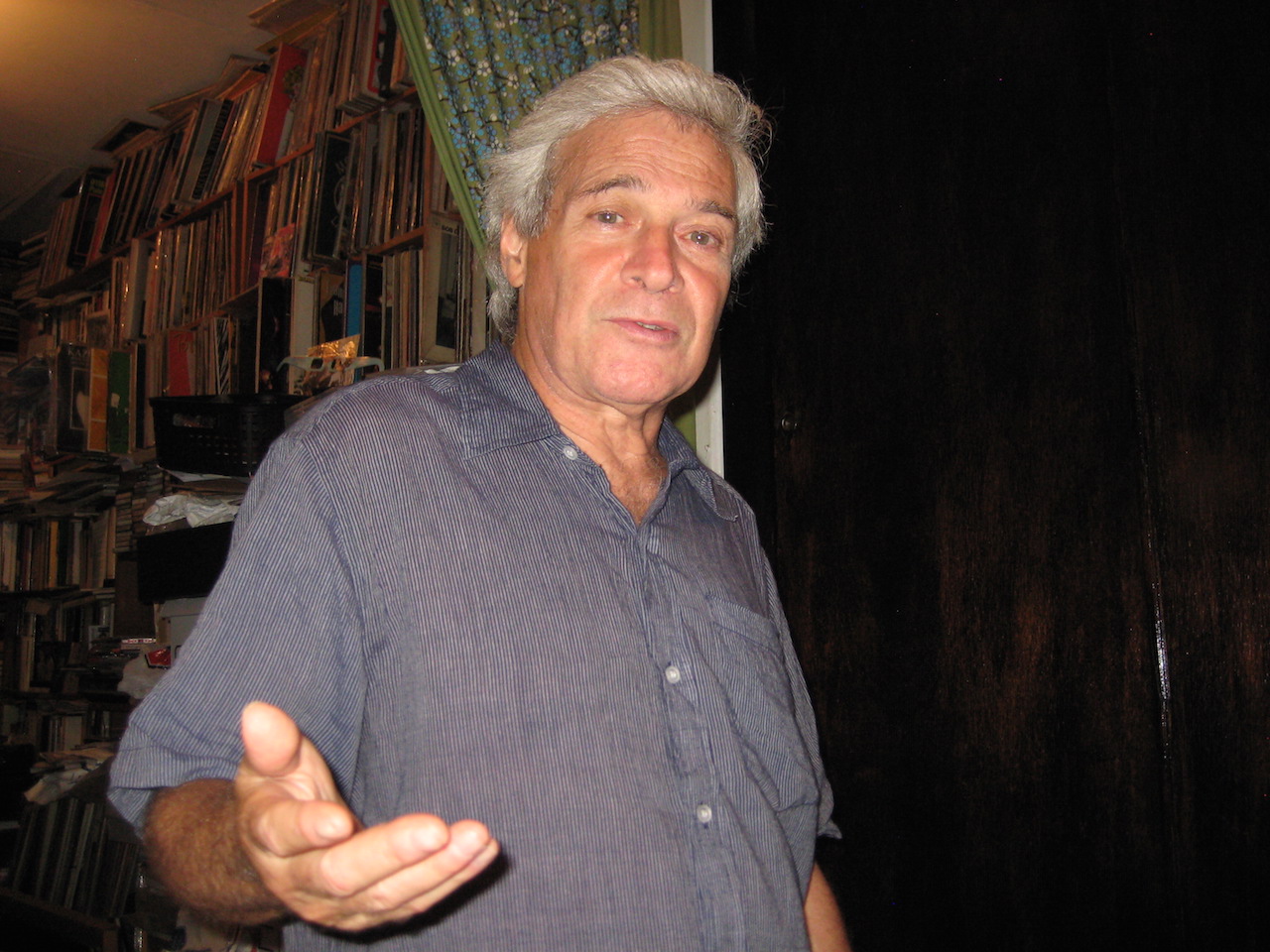
BY DUSICA SUE MALESEVIC | Don’t tag poet Steve Dalachinsky as a poet.
“I don’t even like being called a poet — it’s a big label,” Dalachinsky said. “I don’t think anyone should be pigeonholed.”
Dalachinsky, who has been a maker of verse since he was young, has written books of poetry whose subjects range from free jazz to being a superintendent.
A moment later, he reconsidered.
“O.K., let’s put it this way, I’m a poet,” he said. “Or let’s put it more succinctly. What I’ve done for the better part of my life — besides complain and be rude to people — is write poetry. I write poetry, you know? That’s what I do.”
For two hours, Dalachinsky, 69, talked with The Villager about his life, work — both poetry and collage — and influences at his jam-packed Spring St. apartment, where he has lived since the mid-’70s.
Dalachinsky grew up in Midwood, Brooklyn, and said his parents were working class.
“Where I grew up was O.K. I had some friends. It was a very Italian and Jewish neighborhood. I had more Italian friends than Jewish friends. I always had this class-consciousness thing, which I still have, unfortunately,” he said with a laugh.
Even though he went through “heavy stuff” as a kid, Dalachinsky said he remembers always writing and being involved in art. He started taking art lessons and ended up with a mini-scholarship to the Pratt Institute. For 18 months he tried his hand at painting, but soon turned full-time to poetry.
“I was probably never successful at poetry, but the poetry kept continuing and continuing,” he recalled. “I have notebooks that go back to — the earliest notebook that survived is between the age of 13 and 15.”

At one point he dropped out of high school and he said he was “very involved” with drugs in the ’60s.
“I’m not an academic; I didn’t go to school,” he said. “I went to Brooklyn College for about 30 seconds.”
However, during this period, someone gave him copies of Lawrence Ferlinghetti’s “A Coney Island of the Mind” and Allen Ginsberg’s “Howl” — and it changed his writing style.
“[Ginsberg] gave me the license in his work,” he said. “Ferlinghetti gave me the license to say things like, when he wrote a poem, ‘Christ climbed down from his bare tree.’ I wasn’t Christian, but very into the whole Jesus myth and I’m saying, ‘Wow, I can say derogatory things about religion?’ I can do whatever I want.”
Dalachinsky counts Franz Kafka, Albert Camus, Ezra Pound, Delmore Schwartz, Federico Garcia Lorca, e.e. cummings and William Blake — especially his “Auguries of Innocence” — among his influences.
He depicted his writing process as “spontaneity mixed with a conscious pushing.”
“The process for me is both the forced intention of wanting or needing to write a poem mixed with the free flow of writing a poem,” he said. “I try to subvert a lot of linearity intentionally because I’m so bored. I’m a romantic writer.”
This is perhaps best exemplified in his book “The Final Nite and Other Poems: The Complete Notes from a Charles Gayle Notebook 1987-2006.” Gayle is a free jazz saxophonist who also plays piano, bass, drums and bass clarinet.
The collection started in the ’80s — that’s when Dalachinsky said he wrote poems while listening to live music. For 19 years, he went to Gayle’s performances and created poems on scrap paper.
“It’s a chronicle. It’s in chronological order of all the venues he ever played in — two-thirds of which don’t exist anymore,” he explained.
Many of Downtown’s free jazz spots, like Ray Taylor’s Living Room on the Lower East Side, are now gone, he said.
Dalachinsky has written hundreds of liner notes for albums and currently collaborates with musicians, such as Eighty-pound Pug and The Snobs. He also lends his artwork — dense collages — for CD cover art.
But Dalachinsky doesn’t only create poems connected to music. He also released a collection called “A Superintendent’s Eyes,” which focused on his time as a super at the Spring St. building. The Unbearables — a “loose collective of noir humorists, beer mystics, anarchists, neophobes and passionate debunkers,” according to its Web site — published the collection.
Both Dalachinsky and his wife of more than 30 years, Yuko Otomo, have been connected to the Unbearables for some time. A scribe as well, Otomo has written four novels in Japanese and much art criticism.
“I mean, she’s the real brilliant one in the family and that’s for sure,” Dalachinsky said.
Dalachinsky knew one of the Unbearables founders, Ron Kolm, who used to work at the New Morning Bookstore on Spring St. At that time, Dalachinsky was selling books and records on the street. Another Unbearables member invited Dalachinsky to one of the group’s gatherings and eventually he went.
“I said then and still say, I’m not an Unbearable, but what happened was I did get into one of their anthologies,” he said.
Later on, Otomo and Dalachinsky were asked to art edit “The Unbearables Big Book of Sex.”
“Now we’re all friends,” Otomo said.
Ever the contrarian, Dalachinsky said, “I still hate a couple of them. But we have a good relationship.”
Steve Dalachinsky will be part of a music and poetry event put together by Marc Sloan on Tues., Jan. 14, from 6 p.m. to 9 p.m. at KGB Bar, at 85 E. Fourth St. Go to kgbbar.com for details.

































